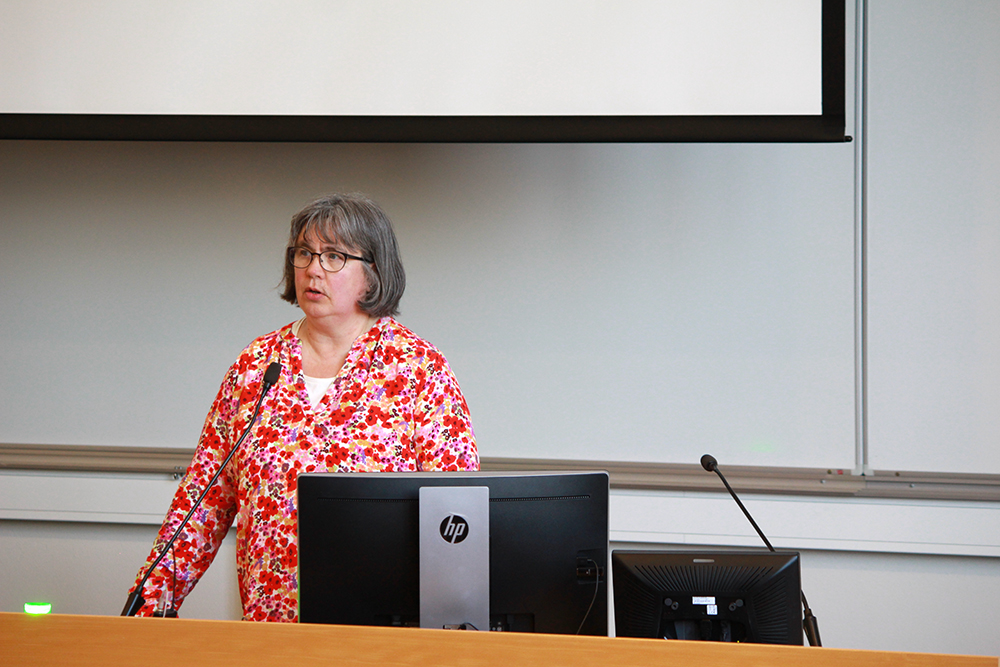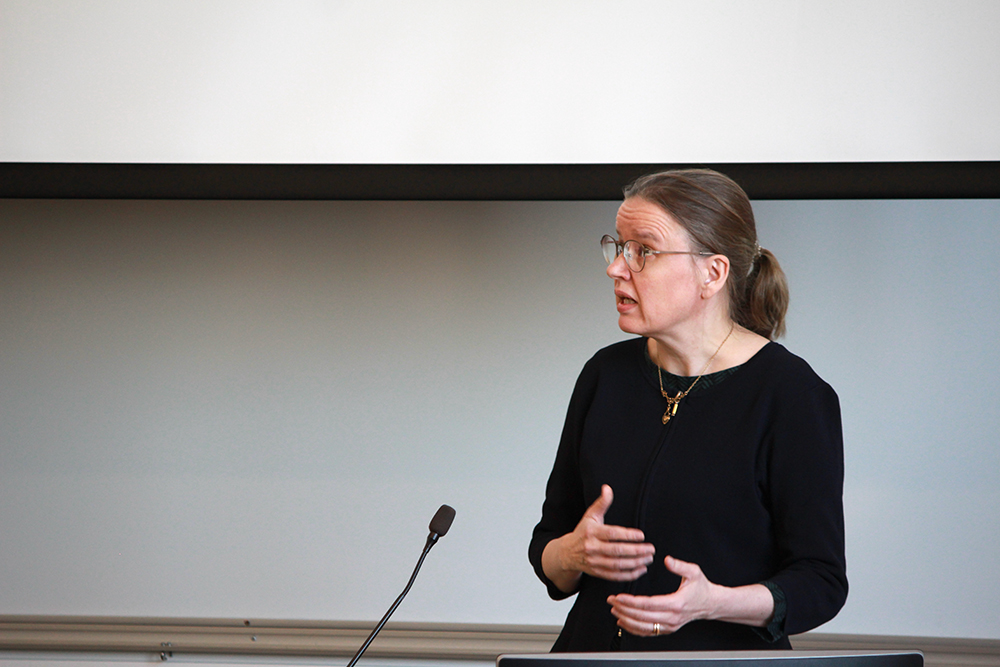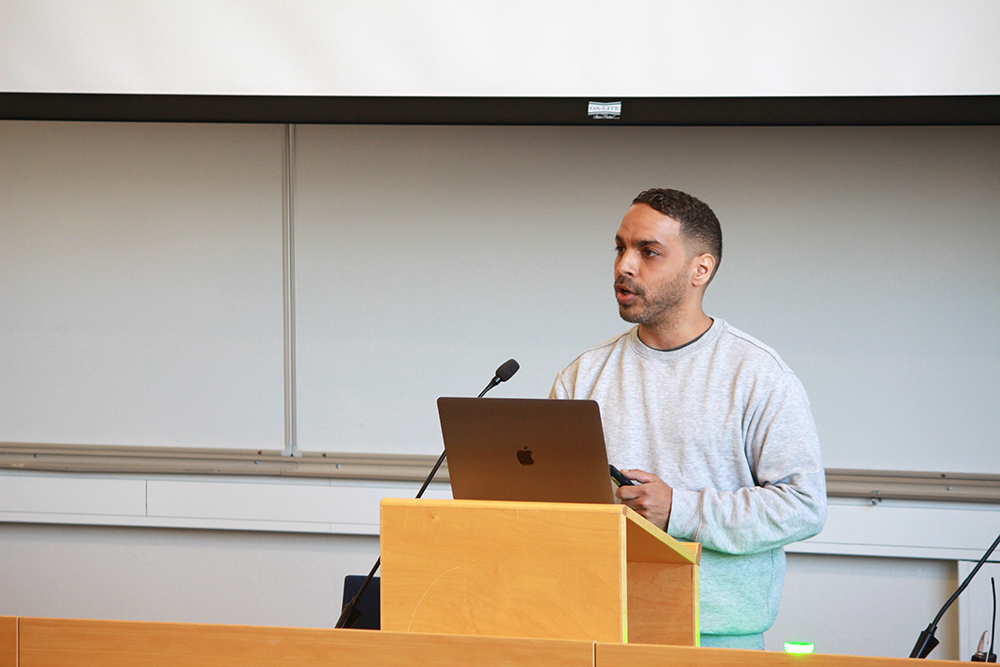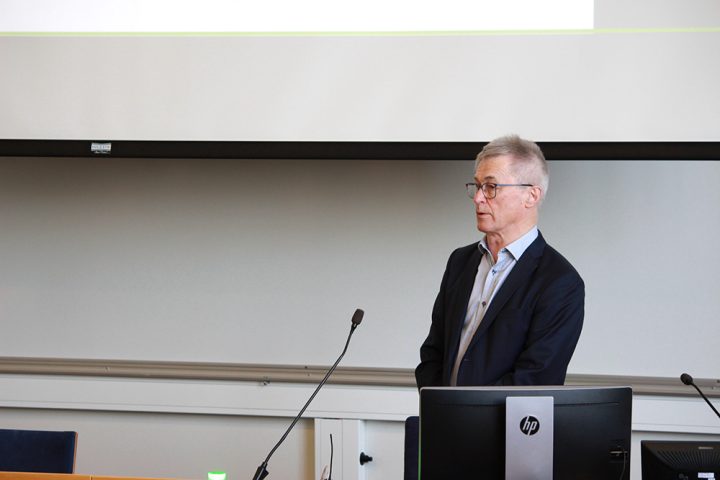“Mental health is a part of humanity” – In a Recent Seminar, The Experts Emphasized the Societal Effects of Mental Health
In a recent seminar, there were presentations about mental health stigma and ways to reduce it. A major topic of discussion was the prevalence of mental health stigma and its negative effect on the human dignity of those in need of services. The seminar was organized by The Research Centre for Child Psychiatry, INVEST research centre and the Advisory Board for Public health (Ministry of Social Affairs and Health).
Matti Kaivosoja: “Besides being personal capital, mental health is also societal capital”
Matti Kaivosoja, clinical teacher in child psychiatry (University of Turku) and the chair of the seminar, presented the Finnish National Mental Health Strategy. The strategy is meant to be the guideline of Finnish mental health politics, over parliamentary election seasons, until year 2030.
Kaivosoja also expressed his concern for political rhetoric where mental health isn’t represented as an investment.
– Besides being personal capital, mental health is also societal capital. Being capital, it can be decreased or increased, said Kaivosoja.
In the picture above: Matti Kaivosoja (University of Turku) presented the Finnish National Mental Health Strategy.
Sir Garaham Thornicroft: “Social contact is the most crucial way of reducing stigma on mental health issues”
In his pre-recorded lecture, Professor Sir Graham Thornicroft of King’s College spoke about the formation of mental health stigma. In addition to that, Thornicroft presented ways that can be used to reduce this stigma.
According to Thornicroft, there have been several campaigns that have been aimed at reducing stigma via advertising campaigns or play and games, for instance. There is evidence that these different campaigns have succeeded in reducing stigma in both wealthy and poorer countries. However, Thornicroft emphasized that social contact is the most crucial way of reducing stigma.
According to Thornicroft, it is important to reduce stigma, for stigma has a negative effect on the fulfilment of human rights.
– Mental health is a part of humanity, Thornicroft sums up.
Päivi Rissanen: “It’s important to remember human dignity”
Senior Specialist, Doctor of Social Sciences Päivi Rissanen from The Finnish Central Association for Mental Health (MTKL) lectured about experiencing stigma. The basis of the lecture was Rissanen’s own experience as a mental health patient. Rissanen also expressed her concern about the fact that mental health patients’ experience of being plenipotentiary members of society has worsened.
According to Rissanen, the essential factors for the recovery of mental health patients are resources and participation, hope and meaningfulness and positive mental health.
– It’s important to remember human dignity. It’s not based on the things one is able to do or has energy to do. All of us should have a right to do things that we consider meaningful, with the resources we have during each moment, said Rissanen.

Jaana Suvisaari: “Stigma is a phenomenon that concerns all of us”
Jaana Suvisaari, research professor in the Finnish Institute for Health and Welfare (THL), gave a lecture about stigma in the service system.
One of the examples Suvisaari shared was the stigma that is related to the diagnosis of an unstable personality. This stigma is based on the differing backgrounds of physicians – physicians with a biomedical orientation avoid using the diagnosis, which leads to worsened treatment. According to Suvisaari, the key factor in reducing stigma is educating medical personnel.
Suvisaari also expressed her concern about the widening gap between the fundings of primary health care and mental health care. She also reminded about the prevalence of stigma in the society.
– Stigma isn’t a thing that concerns “someone else, somewhere else”. It is a phenomenon that concerns all of us, reminded Suvisaari.

Katja Miettinen: “Children’s mental health crisis is a matter of our whole society”
Senior inspector Katja Miettinen from the Ombudsman of Children gave her lecture via a conference call. The topic of her speech was equality as a child’s right. Miettinen presented the action of Ombudsman of Children, such as how the Ombudsman aims to find out the views of children and forward these views to decision makers.
According to Miettinen, children’s mental health problems have worsened during the 21st century. There is a small group of children for whom different problems accumulate to.
– Children can’t choose the family they are born into or where their families live. We have to take care of every child. Children’s mental health crisis is a matter of our whole society, said Miettinen.
Tariq Omar: “Mental health personnel need education on how to encounter immigrants”
Project Manager Tariq Omar from SAMHA ry (Substance Abuse and Mental Health Association) spoke about the effects cultural differences have on mental health stigma. By taking these cultural differences into consideration, it is possible to make the services more accessible for immigrants.
Omar presented strategies that can be used in order to reduce the stigma related to the mental health of immigrants. Open dialogue, multilingual communication, translation services and cooperation with community leaders and organizations are important means to reduce stigma. However, the most essential strategy is educating the mental health personnel, in order to enhance cultural sensitivity.
– Mental health stigma is a remarkable challenge that affects especially immigrants and can keep them from getting the treatment they need. Culturally sensitive mental health personnel are in a key position, when it comes to reduce the stigma in immigrant communities, said Omar.


